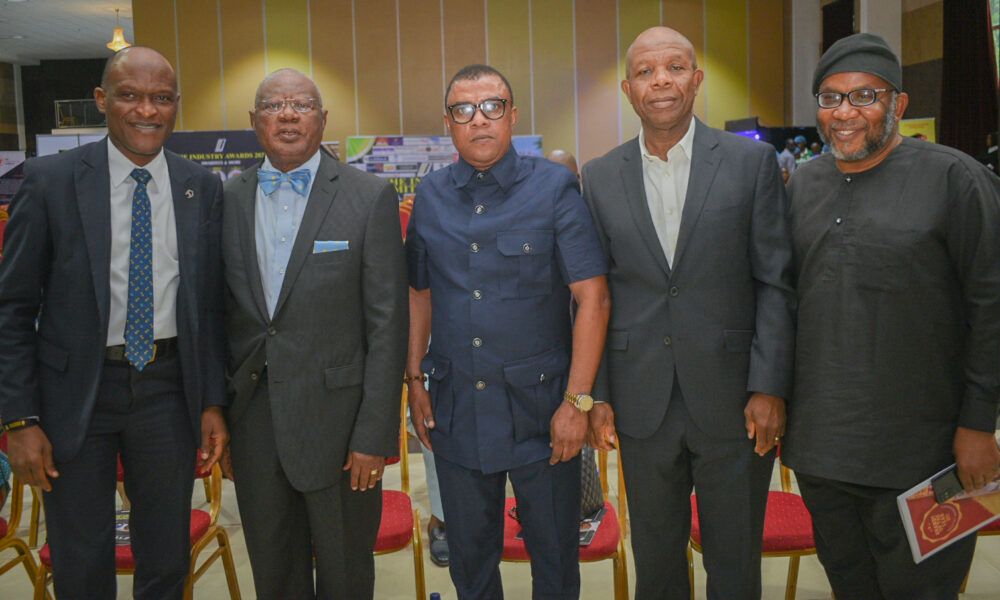The Corporate Affairs and Sustainability Director, NBC Ekuma Eze, has said that, Nigeria’s Foreign Direct Investment (FDI) has declined steadily over the last five years.
Eze, who made this known at the weekend in Lagos during Industry Summit 4.0 with the theme: “how marketers should handle 2023” disclosed that, FDI fell from $261.35m in Q2 2018 to $147.16m in Q2 2022 or a compound annual decline of -13.39% in the last half decade.
As one of the keynote speakers at the summit, while presenting his paper entitled: “FMGC: Impact of government policy shift on the industry and the Consumer” he pointed out that, “some may tend to attribute the declining FDI as stated to COVID-19 issues between 2019-2020. This is not entirely true because countries like India and China saw a rapid rise in FDI in the two years despite outbreak of the pandemic. Since the mid-2000s, China and India have seen FDI soar as both countries beat the poverty trap.”
According to him, “the simple reason why China and India have continuously recorded rising FDI is their policy thrust that has placed emphasis on productivity and workforce quality. The two countries have set a national work ethos that has made their citizens among the most productive on the planet.”
“I have tried to lay this foundation to underscore the importance of government policy in creating a favourable business environment for FMCGs. Public policy is the foundation for business creation, growth and overall economic prosperity. Public policy processes represent the fundamental processes of governance and development. I stress on development here because public policy should be about people’s needs and for their good. Therefore, the principles should be efficiency, effectiveness and responsiveness, consensus and adequate participation of the people in a transparent and accountable process.” He noted.
Continuing, he said that, Nigeria unfortunately has been largely plagued by policy inconsistencies, reversals and lack of coherence, noting that, between 1960-2000, real income per capita grew at only 0.43% per year.
He however, stated that 2001-2006, real per capita GDP grew at an annual rate of 4.2%. The difference between the two periods is simply due to policy choices.
The improved performance between 2001-2006 was owing to comprehensive economic reform program via the National Economic Empowerment and Development
“His words: “Strategy (NEEDS). NEEDS encompassed important structural reforms designed to enhance the transparency and accountability of public sector policies and institutions. It focused on improving the macroeconomic environment, pursuing structural reforms, strengthening public expenditure management, and implementing institutional and governance reforms. This resulted in real GDP growth averaging 7.1 percent per year between 2003 and 2006, an inflation rate of 10 percent in 2006, foreign exchange reserves of US$45 billion in 2006, and total external debt of only US$5 billion in 2006. An oil price-based fiscal rule was introduced in which government expenditure was based on a prudent oil price benchmark. Any revenues that accumulated above the reference prices were saved in a special excess crude account. Government budgeting was based on conservative oil prices of $25 per barrel in 2004, $30 per barrel in 2005, and $35 per barrel in 2006, despite higher realized prices of $38.3 and $54.2 in 2004 and 2005, respectively.”
For him, adoption of this rule ensured that government expenditures are de-linked from oil revenue earnings, thereby limiting the transmission of external shocks into the domestic economy. There was a marked improvement in the government’s fiscal balance, with the previous deficit of 3.5 percent of GDP in 2003 turning to consolidated surpluses of about 10 percent of GDP in 2004 and 11 percent of GDP in 2005.
Also, he stated that, “fast Moving Consumer Goods (FMCG) as it is broadly categorized, comprises of three major segments: Household care, personal care and food and beverages.
FMCGs form the largest chunk of the manufacturing sector in Nigeria, which is the fourth largest sector of Nigeria’s economy, creating employment for over 3 million Nigerians.”
“the FMCG industry in Nigeria is worth about US$20 billion. In Q3, 2022 Nigeria’s Gross Domestic Product (GDP) grew by 2.25 per cent (year-on-year) in real terms, representing a 1.78 per cent decline compared to the 4.03 per cent growth recorded in Q3 2021, according to the National Bureau of Statistics (NBS). The manufacturing sector contributed 8.59 per cent to GDP, lower than 8.96 per cent in Q3 2021, as well as 8.65 per cent in Q2 2022.” He added.
He further disclosed that, the declining performance of the manufacturing sector according to the NBS data is indicative of the realities of the operating environment characterized by high lending rate, forex illiquidity, high energy cost and adverse effect.
In his opening remark, Goddie Ofose, convener of The Industry Summit stated that immediately the CBN governor announced the cash swap policy on November 2022, it was very certain that the first quarter of 2023 would be difficult for marketers.
According to him, “the theme encapsulate what has transpired in the first quarter of this year, therefore, the remainder of the year should be much easy if marketers have taken lessons from the happenings of first quarter.”
He also stressed that, “besides cashless policy challenge, general election and population census pose another huge challenge for the imc industry because during every election circle, the marketing vehicles which are media and it’s channels are usually being taken over by politicians. This makes vert difficult for marketers to compete because politicians would always outspent brands during this time.”
“brands are conscious of their adventure because new government usually come with new policies.It is my believe that the outcome of the summit would better put marketers in a good stead to manage their expectations in the remainder of the quarters in 2023.”









